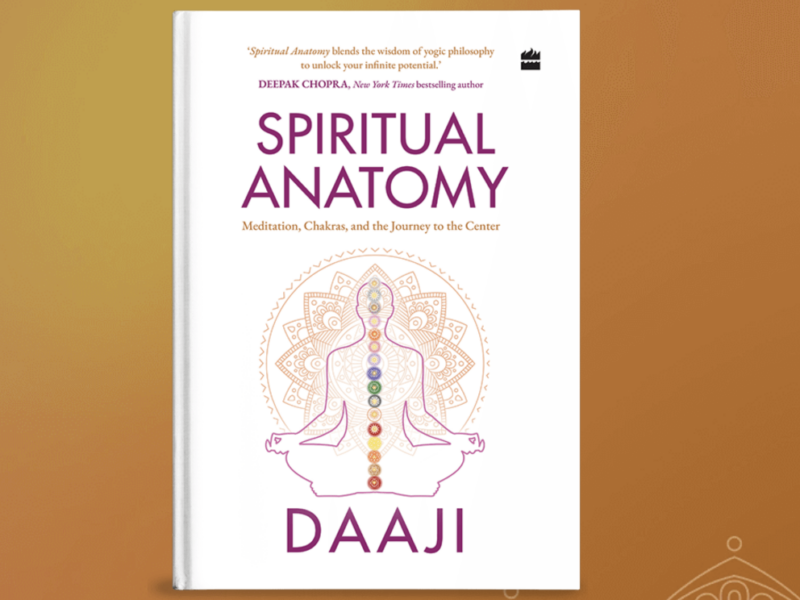5 Revolutionary Lessons
 The Bhagavad Gita is one of the most revered ancient spiritual scriptures of India. A part of the epic Mahabharata, the Gita is set on a battlefield where royal cousins are at war. Its narrative comprises life lessons drawn from a dialogue between the champion warrior, Arjuna, and his enlightened spiritual teacher, Krishna, who is Arjuna’s charioteer and comrade. Krishna, God to many Hindus, was a revolutionary thinker, astute politician, a family man and a successful king.
The Bhagavad Gita is one of the most revered ancient spiritual scriptures of India. A part of the epic Mahabharata, the Gita is set on a battlefield where royal cousins are at war. Its narrative comprises life lessons drawn from a dialogue between the champion warrior, Arjuna, and his enlightened spiritual teacher, Krishna, who is Arjuna’s charioteer and comrade. Krishna, God to many Hindus, was a revolutionary thinker, astute politician, a family man and a successful king.
The war is about to begin, but Arjuna is unable to fight as he’s overcome with emotional attachment to his family members on the battlefield. Krishna explains and reasons why Arjuna must fight and win the war for the good of his people and the future of the land. Hidden within this sacred manual are several secrets to promote inner and outer excellence. The profound teachings by Krishna, as depicted in the Gita, are timeless as they can help guide a person, irrespective of age, religion or ethnicity, to introspect life and its unexpected twists and turns in a spiritual manner.
Here are five life-transforming lessons picked for our readers, which are essentially spiritual drops of wisdom taken from the ocean of advice counselled by Krishna as he guides a confused Arjuna along a righteous path, demystifying the moral struggles faced by all human beings.
By Vikas Malkani and Vidhya Shailesh
1)Whole-istic Work
In Sanskrit, the phrase Nishkaam Karma means work that is done for the greater good of the whole, not just one’s own self; this is also commonly referred to as Selfless Action. Krishna teaches that any action we undertake must be beneficial for others as well. The Universe is like a mirror—it reflects back whatever it sees. Performing whole-istic and selfless work can help you attract success and abundance for yourself.
2)The Art of Detached Engagement
Krishna advises that we must have clear intention in everything we choose to do. This intention is found by meditating and looking within ourselves to find our deepest driving desires. We must follow that with emotions and actions that support our intention.
Once the most effective action is performed in alignment with this intention, we must detach from the results. We control only our actions, not the final result. Krishna’s advice is to perform actions with commitment and detached engagement to set ourselves free from the burden of expectations.
3)Follow your Dharma
Krishna counsels Arjuna that his emotions have overtaken him, sapping him of willpower and strength, and making it difficult for him to lift his weapons and fight. He explains to Arjuna that his life path and purpose is that of a warrior, and therefore he must stay true to what he is here to do. He must hence pursue his life path and fulfil his purpose.
Krishna thus teaches the importance of discovering our own life path, and not blindly following others. There is impeccable clarity in following your own purpose. He advises that all people are here with a life purpose hidden within them, which they must discover.
4)As is the Micro-so is the Macro
Krishna introduces the idea of the popular vedic verse: Yathaa Pinde, Tathaa Brahmande, which translates into “As is the Atom, so is the Universe”. In other words,
Krishna shares a secret of enlightened wisdom when he says,
• As is the individual, so is his life
• As is the root, so is the fruit
• As is the inner world, so is the outer world
Our life and what we manifest in it is a reflection of what goes on inside us. Our current results in our outer world are the results of our inner cosmos. We develop the roots of everything inside us first in the form of our thoughts. These thoughts drive the actions we take, which in turn produces the good and bad results we experience. Only when we change our thought process do we begin to change our actions, and its results. ‘Change your thinking before you can change your life’—a building block of reality as taught by Krishna as it places full authority and responsibility on our shoulders for creating the life we want.
5)Death is a new beginning, not the end
Krishna says that life and death are a natural process of a beginning and an end. He makes clear that death is only a doorway to future possibilities and experiences, while we continue to evolve. It simply takes you from one environment to another, from one experience to another, and there is nothing to fear.
We must train our minds to stay focused, have conviction and purpose. Then, at the moment of death, this trained mind can consciously carry us forward. Meditation and introspection train the mind and liberate us from fears and hidden expectations that lie in the subconscious mind.
This article was first published in the print edition of Yoga Journal Singapore, which is now Yogahood Online.






